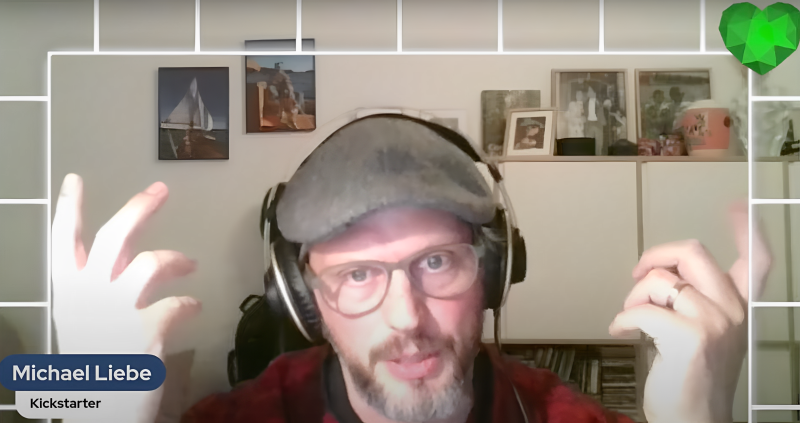Using Kickstarter for a game shouldn’t be solely about the campaign but about building a company working on multiple games. “View Kickstarter as a tool, not the end goal”, says Michael Liebe, Lead Outreach Games Europe at Kickstarter on the IndieGameBusiness podcast. It should complement other funding sources, fostering creativity in fundraising. Combine public funding, work for hire, and Kickstarter, using the platform to elevate, attract investors, and build a brand.
Publisher sentiment
In recent years, there’s been a shift in publisher sentiment towards Kickstarter. Initially, many publishers avoided projects already on Kickstarter, preferring to announce and market new IPs themselves. However, with the increasing diversity of publishers and games, this stance is changing. Some publishers now accept games that have undergone Kickstarter campaigns, emphasizing a focus on future collaboration and development potential. Some even engage in Kickstarter campaigns for indie games or support them financially.

“Kickstarter is viewed as a proof of concept and demand, offering valuable insights”, says Liebe. However, a failed campaign may prompt publishers to scrutinize aspects beyond marketing, including game quality and community engagement. Honest self-reflection post-campaign is encouraged, as Kickstarter feedback can guide developers towards improving their game or exploring new ideas.
Digital rewards
For video game Kickstarter campaigns, popular digital rewards involve creatively engaging backers in the game world. These may include naming NPCs, villains, or locations within the game. Backers can contribute ideas for in-game elements like shops, bars, or even the end boss. These personalized cosmetics allow backers to manifest themselves in their favorite medium. “You just need to be creative, but please keep your rewards digital”, stresses Liebe. “If you’re doing a video game campaign, you should not send T-shirts, posters and whatever”

For a successful Kickstarter, developers should have a bug-free, visually impressive demo or vertical slice ready, aligning with the final game’s visual standards. “The shorter the time between Kickstarter and shipment, the better people will trust you to actually deliver”, says Liebe. While game designers often prioritize mechanics, Kickstarter success relies on early visual appeal. Funding goals, influenced by Steam’s pricing trends, are shrinking. Lower goals tap into the psychology of the ‘hype train’. Early funding success boosts backers’ confidence in the project’s viability.
Build a following
“For building a following the advice is to be brave and consistently communicate your progress”, says Liebe. “People appreciate creativity.” Share updates, screenshots, and behind-the-scenes content on social media to engage with potential fans. Regular communication on platforms like Instagram and Twitter is crucial due to algorithms favoring frequent output and community interaction. Additionally, emphasize the importance of collecting email subscribers through a landing page on your website or events, as email campaigns have the highest conversion rates for audience retention and support.
So what is a good time in your development cycle to start a Kickstarter campaign? “It depends”, says Liebe. “You can also play with Kickstarter. If you are transparent about it, you might even just want to test your game idea. So, put up a one thousand dollar funding goal and see what happens. You can do that, but it’s not a typical thing. If you really are serious about Kickstarter as part of your distribution strategy, then you should be as late as you can actually.”
Check out the full conversation Michael Liebe had with Jay Powell at the IndieGameBusiness podcast

